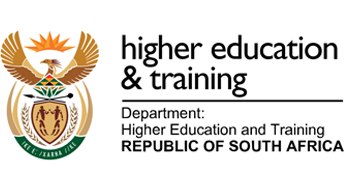News & Announcements

Foreword
The Council on Higher Education (CHE) is an independent, statutory body established by the Higher Education Act of 1997. The CHE’s mission is to contribute to the development of a higher education system that is characterised by equity, quality, responsiveness, and effective and efficient provision and governance and management. The CHE makes this contribution by providing advice on higher education policy issues to the Minister of Education, through the quality assurance activities of its Higher Education Quality Committee (HEQC), through monitoring and evaluation of aspects of higher education, and various other important activities.
This research report, which presents an impressive array of description, analysis and findings on key aspects of distance higher education in South Africa, is the result of an extensive investigation prompted by a request to the CHE in late 2002 from the Minister of Education for advice on ‘the role of distance education in the development of the higher education system’.
The Minister of Education expressed concerns around ‘the unanticipated consequences of the proliferation of distance education programmes offered by contact institutions in the absence of a clear policy framework’ on the emerging single dedicated distance education institution (the University of South Africa – UNISA); and also around the relevance and quality of the distance education programmes offered by contact institutions, ‘especially as the introduction of the programmes appeared to have been driven by financial gain, in particular with respect to programmes offered in partnership with private providers’. In these regards, the Minister of Education requested the CHE to advise him on
- The conditions and criteria which should govern the provision of distance education programmes by traditionally contact institutions, given the concerns raised in the National Plan.
- The broader role of distance education in higher education in the light of current and future international trends and the changes in information and communication technology. This would ensure that distance education is well placed to contribute to the development and transformation of the higher education system and its role in social and economic development.
- The role of a single distance education institution in South Africa, in particular, the role the latter could play, as the White Paper suggests, in the development of a ‘national network of centres of innovation in course design and development, as this would enable the development and franchising of well-designed, quality and cost-effective learning resources and courses, building on the expertise and experience of top quality scholars and educators in different parts of the country’ (White Paper, 1997: 2.61).
It subsequently became clear that the Minister also sought advice on the funding of distance education.
The investigation of the CHE that has been synthesised in this research report was undertaken in a complex context in which the Ministry acknowledged in both the 1997 White Paper and the 2001 National Plan for Higher Education that the ‘traditional distinction between contact and distance institutions and modes of delivery is becoming increasingly blurred’ (MoE, 2001: 60). It also accepted the CHE’s suggestion in its Towards a New Higher Education Landscape) that higher education programmes existed on a continuum running from ‘provision purely at a distance to provision that is purely face-to-face’ (CHE, 2000:44). This implied that it was extremely difficult to identify at which point of the continuum many programmes sat, and hence how they might be categorised. Furthermore, other research had identified the ever-growing diversity of education practices, from distributed lecturing systems using video-conferencing to systems using well-designed study guides and decentralised tutorial support, being clustered under the ‘catch-all’ phrase of distance education.
Within this complex terrain, and taking the Minister of Education’s request as the point of departure, the specific aims of the CHE investigation were to:
- Develop a shared understanding of the changing nature of distance education and its costs and role in higher education, and attempt to circumscribe what is being referred to as ‘distance education’.
- Develop guidelines for role differentiation in the distance education sector.
- Recommend defensible and durable conditions and criteria relating to distance education provision for the Ministry to use in guiding the programme mix at South African public higher education institutions. This will be based in part on an agreement with the Higher Education Quality Committee (HEQC) on criteria for quality distance education provision and their role in assuring these.
- Propose ways in which distance education might be funded.
- Recommend mechanisms to harness the best expertise in the country to develop high quality learning resources for widespread use in the higher education sector.
The investigation took as its point of departure the vision and goals for higher education expressed in the White Paper and the National Plan and the key values and principles that are intended to guide the process of transformation and development in higher education. The investigation concentrated on distance education in the public higher education sector as the issues on which the Minister requested advice pertained primarily to this sector. Further details relating to the investigation are covered in the Introduction to this report.
As always in an investigation of this nature and in the production of a major research report, there are numerous actors to be thanked. The CHE extends its gratitude to the following:
- The members of the CHE Task Team that spearheaded the investigation into distance higher education in South Africa.
- The Council of the CHE, which guided the investigation and approved the Policy Advice Report to the Minister of Education.
- The 24 higher education institutions and representative organisations that made submissions and presentations to the Task Team, and whose thinking and ideas informed the work of the Task Team.
- The higher education institutions that graciously provided permission to conduct 10 case studies.
- The South African Institute for Distance Education (SAIDE) which served as a consultant to the Task Team, and supported the Task Team in various ways.
- Local and international researchers who were contracted to carry out research on specific issues.
- Higher education and distance education specialists who participated in a workshop on developing and sharing quality learning resources in South African higher education.
- The international distance higher education specialists from the United Kingdom, Canada, Malaysia, Nigeria, Australia, United States, Ghana and New Zealand who participated in the CHE seminar in Cambridge, England, and critically commented and advised on the draft proposals of the CHE Task Team.
- The staff of the Open University in the East of England who provided tremendous assistance in the organising of the Cambridge seminar.
- Officials in the Higher Education Branch of the national Department of Education (DoE), and especially the Planning Directorate who made submissions and presentations and provided the required data on enrolments and funding and financing.
- The members of the CHE Secretariat who assisted in the production of this Report and especially the Project Administrator of the Task Team investigation.
Finally, the CHE is grateful to:
- The Ford Foundation for a large grant to support the CHE investigation into distance higher education.
- The United Kingdom Department for International Development for its financing of the CHE seminar in Cambridge, England.
Prof. Saleem Badat
Chief Executive Officer, CHE
Pretoria, May 2004








